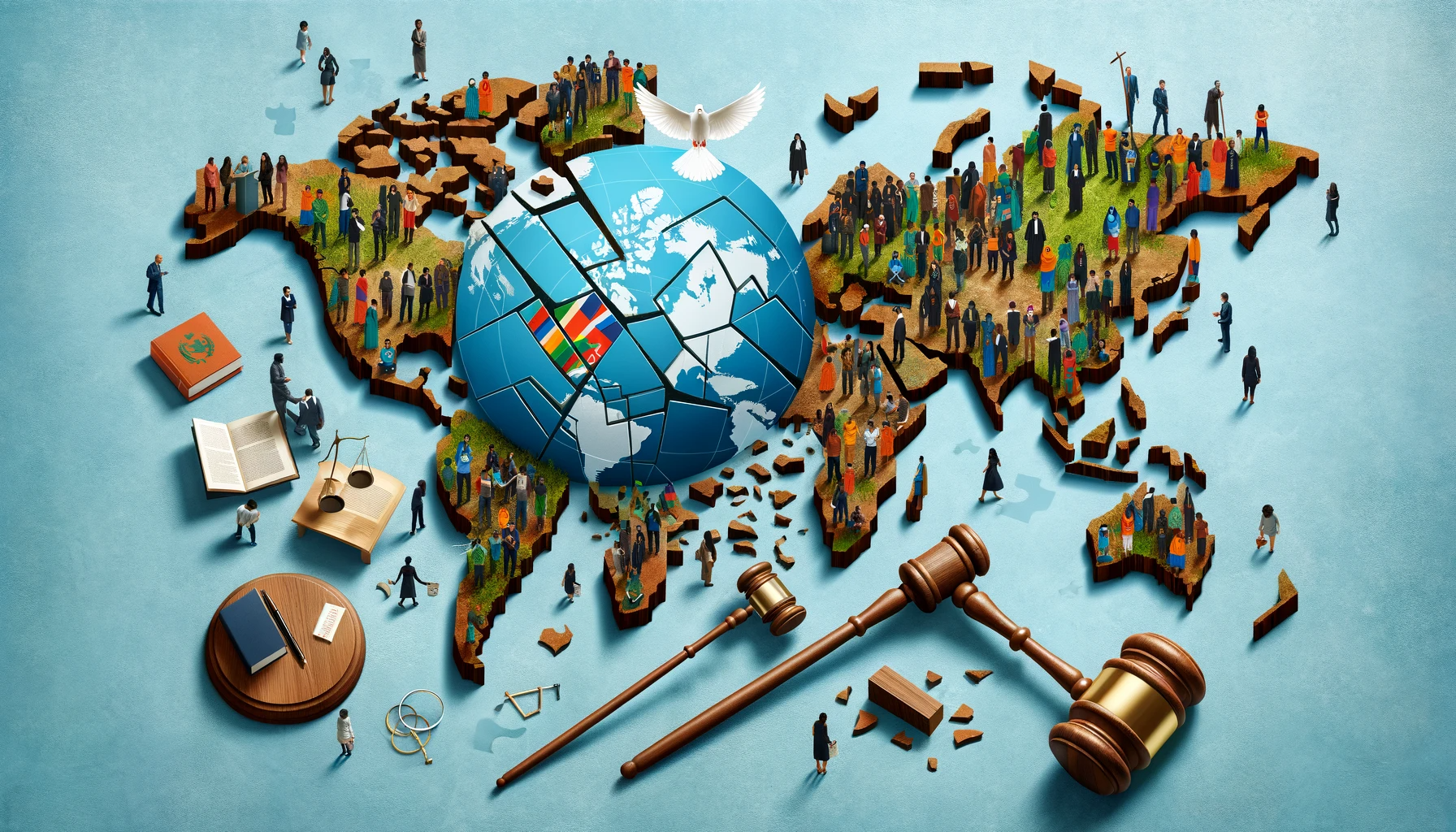In a world where the fabric of societies is often strained by conflict, inequality, and injustice, the Sustainable Development Goal (SDG) No. 16 stands as a beacon of hope and a call to action. It envisions “peaceful and inclusive societies for sustainable development, the provision of access to justice for all, and building effective, accountable institutions at all levels.” However, achieving this vision in a fractured world presents a unique set of challenges and opportunities.
The Landscape of Injustice and Conflict
Our world is marked by disparities and divisions, ranging from economic inequality to political unrest. These challenges are exacerbated by global crises such as climate change and pandemics, which disproportionately impact the most vulnerable. In such a scenario, the quest for justice and peace becomes even more urgent.
Justice: The Cornerstone of Sustainable Peace
Justice is not merely a legal concept but a foundation for societal harmony. When people believe that their rights are protected and that they have recourse to fair legal systems, trust in institutions grows. Conversely, when justice is inaccessible or biased, it breeds resentment and conflict. Thus, achieving justice for all is a critical step towards lasting peace.
Inclusive Institutions: A Pathway to Peace
Effective and accountable institutions play a pivotal role in fostering peace. Institutions that are transparent, responsive to citizens’ needs, and inclusive can bridge the gap between different societal groups. Inclusivity here means not just representation but active participation in decision-making processes, ensuring that all voices, especially those of marginalized communities, are heard.
The Role of Technology and Innovation
In our digital age, technology offers unprecedented opportunities to advance justice and institutional effectiveness. From online legal aid services to digital platforms for public accountability, technology can enhance access to justice and make institutions more transparent and responsive.
Global Cooperation: A Necessity, Not an Option
SDG 16 cannot be achieved in isolation. It requires global cooperation and a shared commitment to uphold human rights and dignity. International bodies, governments, civil society, and individuals must work in tandem to address the root causes of conflict and injustice.
The Way Forward: Collective Action and Resilience
To move towards achieving SDG 16 in a fractured world, a collective and resilient approach is needed. This means engaging in dialogue, building partnerships across sectors, and fostering a culture of peace and justice. It also involves strengthening the rule of law and ensuring that everyone, regardless of their background, has access to justice.
In conclusion, achieving SDG 16’s vision of justice for all in a fractured world is a challenging yet vital endeavor. It requires a multifaceted approach, embracing inclusivity, leveraging technology, and fostering global cooperation. As we navigate the complexities of our times, let us remember that peace and justice are not just lofty ideals but achievable goals that lie at the heart of sustainable development.


